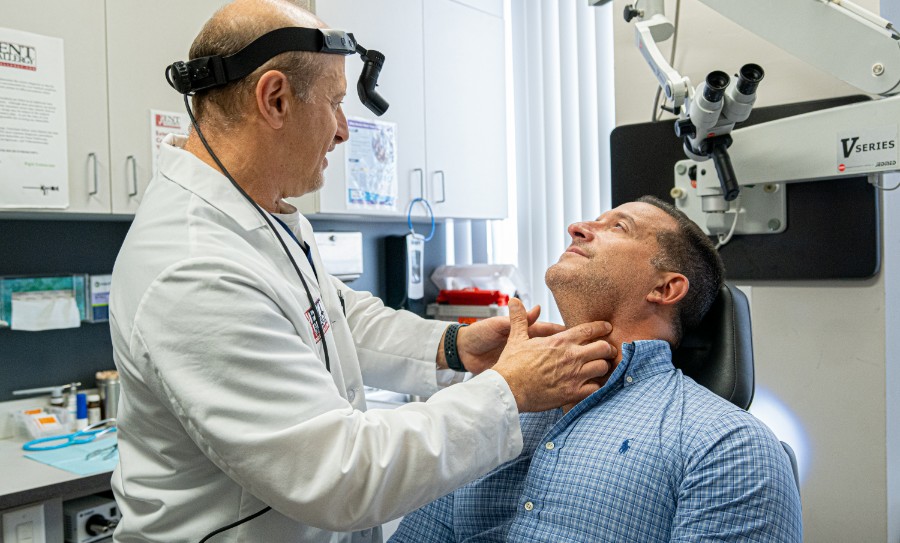
ENT & Allergy Associates’ specialized team of Head and Neck/Endocrine Surgeons consists of highly skilled ENT physicians with extensive experience. These surgeons have undergone formal fellowship training or gained significant personal experience in this field. Their expertise covers a range of conditions, from benign to malignant tumors in the head and neck (excluding the eye and brain), as well as salivary gland tumors, and disorders relating to the thyroid and parathyroid glands. Trust our team to provide you with the specialized care you need for the best possible outcome.
What is a Head & Neck/Endocrine Surgeon?
Head and neck/endocrine surgeons are highly trained ENT physicians who specialize in treating tumors and disorders of the endocrine glands in the neck. They have extensive expertise in both benign and malignant tumors of the head and neck, as well as salivary gland tumors and issues with the thyroid and parathyroid glands. This level of expertise comes from their formal fellowship training and personal experience with these complex conditions. Trust these skilled surgeons for exceptional care in this highly specialized field.
Head and neck and endocrine procedures include the following:
- Thyroidectomy
- Para thyroidectomy
- Parotidectomy
- Excision of submandibular gland for infection or tumor
- Excision of benign and malignant laryngeal (voice box) tumors
- Excision and reconstruction of tumors of the mouth, larynx, pharynx, and neck
- Excisional of congenital masses of the head and neck
Some of these tumors involve more than one site in the head and neck, and it is not unusual for some tumors to require a team approach, including head and neck surgeons, plastic and reconstructive surgeons, rhinologists and skull base surgeons, and neurosurgeons.
In-Office Ultrasound
Office-based ultrasound is fast becoming an essential tool in the management of neck disease. It enables our clinicians to more fully answer questions pertaining to head and neck anatomy, progression of the disease, pathology, and preoperative mapping. It provides the patient one-stop service with more accurate, higher-yielding guided biopsies, all without the need to expose the patient to radiation.
ENT & Allergy Associates boasts the largest ENT, allergy, and audiology practice in the United States with over 25 years of experience. Backed by four world-class certifications, our highly qualified teams of board-certified physicians use cutting-edge technology to provide the highest standard of care to our patients.

Patient Stories
-
"Excellent service. Quick, kind, efficient doctors. Rare to say that."
- Michael T. -
"Very personalized service from staff to Doctor especially Dr. Alaxander S."
- Shabbir A. -
"Really listens to your concerns. Super thorough & knowledgeable."
- M.L.
Less Sick Days, More Living

